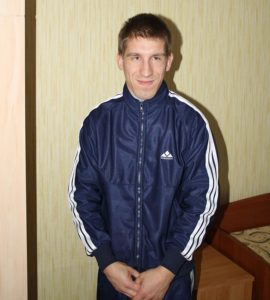Join us on Facebook, Instagram and Twitter, or read one of our blogs. You’ll find the latest news, photos and videos.
Blogs
 The road to Calarasi proved to be quite arduous. We got there frozen and tired. When we entered the house, the pleasant smell of hot food lured us into the kitchen. There, we found Andrei preparing dinner with Mrs. Zina. After a delicious dinner and hot tea, we all sat in the sitting room to share another success story.
The road to Calarasi proved to be quite arduous. We got there frozen and tired. When we entered the house, the pleasant smell of hot food lured us into the kitchen. There, we found Andrei preparing dinner with Mrs. Zina. After a delicious dinner and hot tea, we all sat in the sitting room to share another success story.
Andrei is one of the tenants of the Calarasi Supported Living social service. He is 26 years old, and he has lived in several residential institutions. Now, he lives in the community, has a stable job and a home, where he feels good. When at home, the thing he enjoys the most is cooking for himself and his housemates. Mrs. Zina, the Supported Living manager, says that Andrei has made great progress since he began living in the community. “Andrei’s behavior has changed very much. He has become more sociable. He listens to the news in the evening, and the next day discusses the events that are going on in the world with his neighbors. The neighbors like Andrei’s stories, especially the ones about his participation in trainings in Chisinau and about the self-advocacy group he belongs to.”
Andrei regularly attends meetings of the self-advocacy group, where members learn about their rights and how to defend them. The self-advocacy group is made up of 15 adults with intellectual disabilities, who left institutions and are now living in the community.
Andrei has made extraordinary progress. “When he first came to the service, he did not even know where potatoes grew and what they were. Now, he can count, distinguishes colors, and knows how to use all the house equipment. He learned to cook and performs this task very well,” says Mr. Peter, a Supported Living social worker.
Andrei tells his own story:
Andrei, how are you here? Do you like being in the Supported Living Service?
I like it. I am happy that I live in the community. Most of all, I like the fact that I live next to my friends and I have so many neighbors to talk to.
What is a typical day like for you?
In the morning, I get up, I brush my teeth, I wash my face, I make my bed and, like everyone else, I go to work. After work, I return home and prepare the meal for the other guys. They get home later than me.
Where do you work?
I work in a shop. I do the cleaning. I like working very much. I get paid and I have my own money. I save the money for food and other things I need. I handle it by myself.
Andrei, have you managed to make friends?
Yes, I have. I have many friends: Mrs. Zina, Petru. I also have friends outside the house: Gicu, Mr. Tolea and Gheorghe. I also have a neighbor and a very good friend, Mr. Misa. When we are outside, we sit on the bench and talk about events that happen throughout the country. He helps me. He teaches me to count correctly and calculate the money.
And how do you get along with the guys you live with?
We get along very well. We help each other out. Often, we have outside activities: trips, barbecues. Previously, we used to have them more often, but now it is cold and we go out less.
Andrei, how was it at the beginning when you first came here?
It was harder for me at the beginning. Everything was new and I knew nothing. Then, I got used to it and started to learn. Mrs. Zina taught me to cook and the other assistants taught me to take care of myself. I have also learned to write. I can write my name and the names of the other guys from the house. I have learned to count. Now, I count well. I have become a better at using a computer.
We learnt that you are a member of the self-advocacy group. What do you do there?
We discuss our rights and their defense. I have also acted in a short film, where I recounted how great it felt for me to live in the community.
What would you like the world to know about you?
That I am hard-working and I want to have many friends.
Andrei, what advice would you give to the people from the community?
To treat all the persons with disabilities nicely. We are not bad people and we do not hurt anybody!
The Supported Living social service is a service designed for adults with mild intellectual disabilities, who need support in order to live independently in a community. This service is developed by Rayonal Councils with the support of Keystone Moldova, within the Community for All – Moldova Program. Three more young people with disabilities live together with Andrei in the Supported Living Service.
Join us on Facebook, Instagram and Twitter, or read one of our blogs. You’ll find the latest news, photos and videos.
Blogs